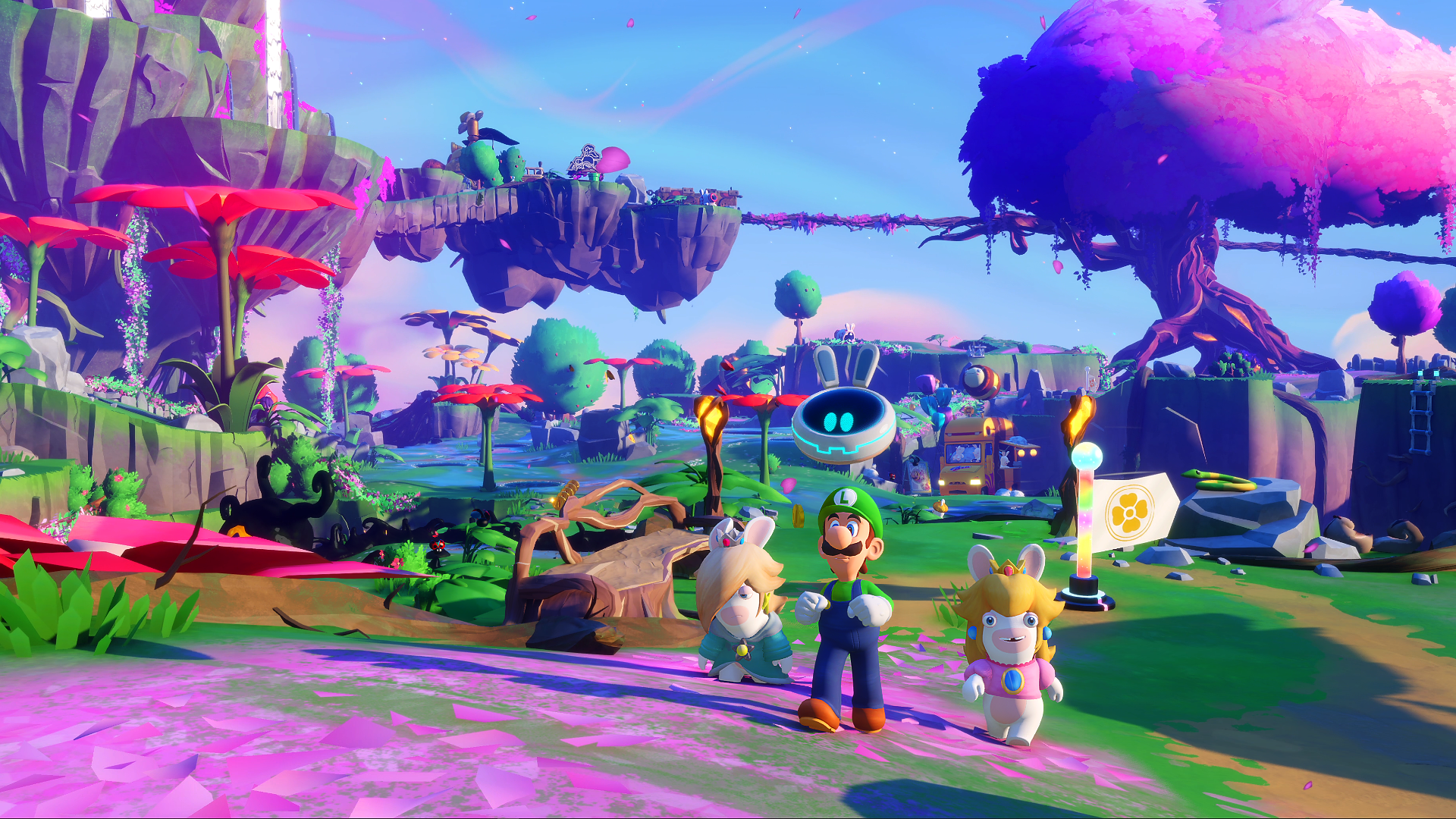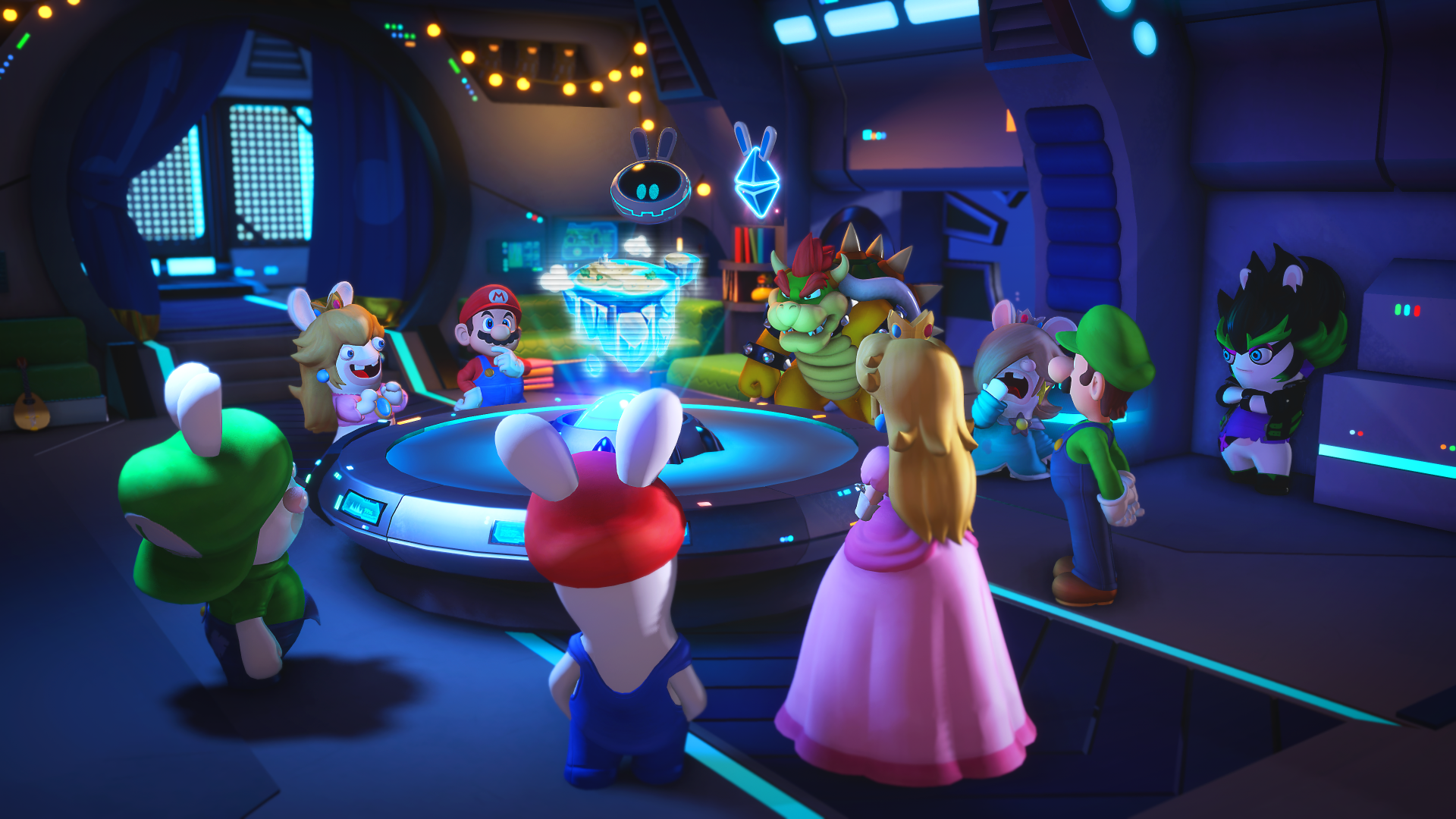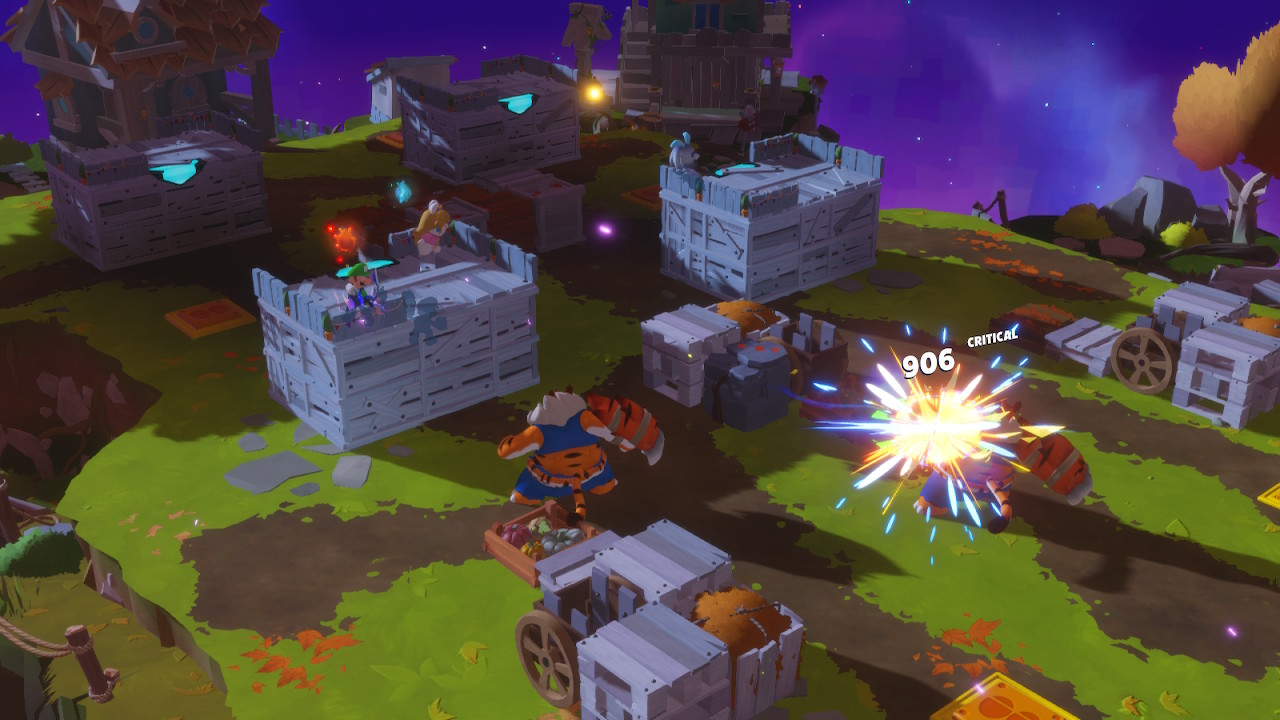Mario + Rabbids: Sparks of Hope was my favorite Switch game of the year — here’s why
Mario + Rabbids: Sparks of Hope defies all logic, just like its predecessor

Welcome! This column is part of a regular series in which we share what members of the Tom's Guide staff are playing and enjoying right now, with an eye towards helping you find great games that you may have missed. Be sure to check out our recent entry, where we talk about Final Fantasy Dimensions 2.
It's no secret that I really, really like Mario + Rabbids: Sparks of Hope. In our full review, I called it "the best possible execution of a truly bizarre premise." I love its tight, strategic gameplay. I love its hilarious script and slapstick. Most of all, though, I love that it's willing to take some risks with its source material.
I doubt anyone expected "Mario and the Raving Rabbids in a turn-based strategy game" to work once, let alone twice. But here we are.
In a year full of excellent Nintendo Switch titles, Mario + Rabbids: Sparks of Hope is my favorite by a wide margin. Even after sinking dozens of hours into Mario's latest intergalactic adventure, I'm ready to invest a few dozen more.
How the video game review sausage gets made

If you haven't played Mario + Rabbids: Sparks of Hope, it might help to know a little bit about the game. It's a sequel to Mario + Rabbids: Kingdom Battle, which was also a delightful surprise back when it launched in 2017. While "Super Mario and friends team up with Rayman's Raving Rabbids" might sound like a pitch for a breezy party game, Sparks of Hope is anything but. Instead, it's a tight and technical turn-based strategy game
You recruit a three-person team, choosing from Mario characters and their Rabbid counterparts, then fight a plethora of crafty foes on a variety of battlefields, chock full of difficult terrain, destructible cover and rapidly changing conditions. Think "XCOM, but much funnier," and you have the basic idea.
To understand why Mario + Rabbids: Sparks of Hope is my current go-to game, I need to explain a little bit about how the video game review sausage gets made. Because game reviews need to go live before the games themselves come out, reviewers usually get games a week or two before they come out. If the game is short - a first-person shooter, for example - that's not really an issue, since there's plenty of time to play through the game and write about it.
If the game is long, on the other hand - for argument's sake, let's say "a challenging turn-based strategy game with RPG elements" - that's when things can get chaotic.
Before the game came out, I played more than 30 hours of Mario + Rabbids: Sparks of Hope and got about 2/3rds of the way through the main story.
Before the game came out, I played more than 30 hours of Mario + Rabbids: Sparks of Hope and got about 2/3rds of the way through the main story. Playing through 30 hours of a game can be an enjoyable experience, if you do it over the course of a few weeks and during your leisure time. It can be quite a different experience if you have to rely on marathon sessions and repeated late nights to make it work.
As such, after I review a game, I'm usually ready to put it down for good. Even excellent games can get grating if you have to play them over and over and over, during a tight time frame with little sleep. But Mario + Rabbids: Sparks of Hope never had that effect on me. Even after I moved onto the next big review (Bayonetta 3 - also a strange and excellent Switch game, oddly enough), I kept booting up Mario + Rabbids for a few quick battles or exploration sessions here and there. I knew I'd want to jump back in as soon as I had some time.
The Switch still works

That time is now, as it turns out. As I write this, I'm in the midst of traveling for the holidays. That means a lot of planes, trains and automobiles - and a lot of downtime while getting from one place to another. The Nintendo Switch lives for situations like this one.
When it comes to enjoying a game at home, then taking that game anywhere and picking up right where you left off, the Switch is still the gold standard.
I've written at length about how the Switch hardware is showing its age, and how Nintendo's idiosyncratic release schedule often leaves gamers with nothing substantial to play for months at a time. However, there's one area where the Switch still excels, and that's in its hybrid design. You can't take any other home console with you, even if Xbox Cloud Gaming has become a pretty good stopgap. And you can't hook up any other portable console to a TV as easily, even though the Steam Deck does technically allow it. When it comes to enjoying a game at home, then taking that game anywhere and picking up right where you left off, the Switch is still the gold standard.
That means that I played Mario + Rabbids: Sparks of Hope before I started packing for my big trip. I played it on the airplane, I played it while staying with relatives, and I'll continue playing it once I get back home again. I won't have to worry about save syncing, or a stable Internet connection, or dragging a gigantic gaming laptop everywhere I go.
The turn-based design in Sparks of Hope is also a boon for travelers. When something important happens in real life - a plane landing, for example, or your relatives arriving for a holiday celebration - you can simply pause the game and suspend it without any fear of putting yourself in a bad situation. Picking up an action game in the middle of an intense firefight is usually a recipe for disaster; picking up a strategy game, where you have all the time in the world to plan your next turn, presents no problem.
I have relatively little time left in Mario + Rabbids: Sparks of Hope, having reached the last of the game's five planets, and discovered almost every secret along the way. But the game has been a salient reminder that the Switch is still a worthwhile console, and Nintnedo can still surprise us with unorthodox ideas that work much better than they have any right to.
Mario + Rabbids: Sparks of Hope hooked me with its complex gameplay, its entertaining story and its colorful visuals, and its effortless portability ensured that I'd keep coming back. That's not bad for a five-year-old system, a portly plumber and a motley crew of riotous rabbits.
Sign up to get the BEST of Tom's Guide direct to your inbox.
Get instant access to breaking news, the hottest reviews, great deals and helpful tips.
Marshall Honorof is a senior editor for Tom's Guide, overseeing the site's coverage of gaming hardware and software. He comes from a science writing background, having studied paleomammalogy, biological anthropology, and the history of science and technology. After hours, you can find him practicing taekwondo or doing deep dives on classic sci-fi.

